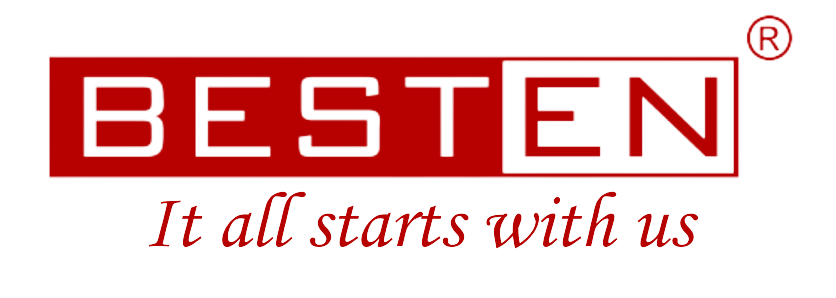What is Grey water?
Greywater is the wastewater generated from domestic use (other than faecal contamination) from residences, offices and other buildings. Industrial plumbing consultants for industrial projects consider sinks, showers, washing machines, and dishwashers as greywater sources. Greywater has fewer pathogens than blackwater and can be reused for non-potable uses like flushing and landscapes.
Sewage is typically of two types:
- Blackwater: is from toilets and kitchens and contains faecal content. This type of sewage water has a high concentration of organic water.
- Greywater is from bathrooms, dishwashers, and laundries and has almost no faecal contamination. This type of water is recyclable.
Why do we need to recycle the grey water?
The demand for freshwater is huge compared to the available water from natural resources. Additionally, environmental pollution is a concern. This shortage of usable water makes it necessary to recycle the grey water. Moreover, the quality of grey water deteriorates over time and may give a pungent smell. The smell makes grey water treatment essential before reuse.
More about Greywater
The composition of greywater is varied. It is different due to chemical and biological degradations of some compounds within the transportation and storage network.
The physical appearance, temperature and turbidity vary due to the constituents. The temperature is raised when hot/ warm water is used for washing. Certain undesirable microbes grow in high temperatures, resulting in the precipitation of carbonates and inorganic salts.
Greywater Treatment
Industrial plumbing consultants always advise the separation of toilet wastewater from greywater. This separation helps reduce the pathogen content and optimise the reusability of greywater. Separation is essential because of the following reasons:
- It helps keep the facility aligned with the concept of separation at the source.
- The wastewater from the kitchen contains fats, grease oil, and organic matter. Preliminary treatment is necessary.
- It is easier to treat and recycle due to the lower content of contaminants.
What are the benefits of the reuse of greywater?
Plumbing consultants recommend recycling due to many reasons. Some of them are:
- Recycling greywater helps bring down the necessity of fresh water.
- Reuse brings down the chances of effluent entering natural water bodies. Thus bringing down environmental pollution.
- Reuse helps in water conservation as it also helps reduce the need for top-up water. Recycling water for landscaping and flushing is a norm of the day in factories.
- The quantity of water from the ground comes down.
- It brings cost efficiency due to reduced water requirements from other sources.
However, plumbing consultants must ensure that the factory owners know how to treat greywater and the benefits of reuse.
Management of Greywater
The three key principles of Greywater management are ” Reduce, Reuse & Recharge”. These principles form the basis of greywater management in industrial projects.
Greywater management varies from simple to extremely complex, depending on the technology and strategy. These systems are implemented to ensure the reduction of contaminants before reuse or disposal. However, the treatment system could be either physicochemical or biological. This contaminant-specific treatment typically has four stages: pre-treatment, primary, secondary and tertiary.
The physicochemical method uses physical and /or chemical methods, including filtration, adsorption, and reverse osmosis. In contrast, biological uses an integration of microbes, sunlight and oxygen.
Some of the methods of treatment are:
- Filtration Method of treatment: this is a physicochemical process where the particles not removed by the previous process get filtered. This method helps filter the particulate matter after the earlier processes.
- Constructed Wetland is an artificial wetland created to mimic conditions in a natural wetland. Special fauna, soil and microbes help remove the pollutants. It could be subsurface flow, surface flow or floating treatment.
- Rotating Biological Contactors (RBCs) are fixed bed reactors with rotating disks, mounted on a horizontal shaft. They are partially submerged and rotate as wastewater flows.
- Sequencing Batch Reactor: The treatment takes place in batches in the reactor tank. In this process, the treatment is through an activated sludge process.
- Membrane Bioreactor: This treatment integrates perm-selective and biological processes. The equipment is compact. So it is suitable for projects where space is a constraint.
- Upflow Anaerobic Sludge Blanket: This system works on the anaerobic treatment method.
- Naturally Occurring Greywater Treatment Media: This system is used as a complementary or a standalone system. The treatment of greywater is through adsorption, filtration or coagulation.
- Soil Biotechnology (SBT): SBT is a green approach for wastewater treatment. This system uses a natural mineral media and culture.
Challenges with Greywater in India
Some of the difficulties related to greywater in India are as follows:
- Lack of Infrastructure: The lack of infrastructure results in grey water draining into the local water bodies, causing health hazards and pollution.
- Lack of awareness: Not all in the manufacturing know about the recyclability of the greywater. The plumbing consultants must educate the clients on the possibility of reducing, reusing and recharging.
- Financial Constraints: The significant initial investment in the process is often a deterrent.
- Advancement in technologies: Lack of technical expertise often is a challenge.
- Behavioural challenges: Educating the workers is a way to change their behaviour. Water-saving practices and greywater usage need the engagement of the workers.
Conclusion:
With the advancement of the industries in the country, it is essential to bring about ecofriendly systems that help the facility become sustainable. The latest technologies have many methods of greywater treatment. The industrial plumbing consultants design a system suiting the requirements of the factory. Moreover, this helps making a factory a bit more “green“:.











